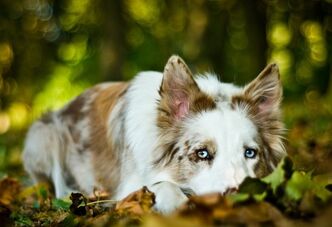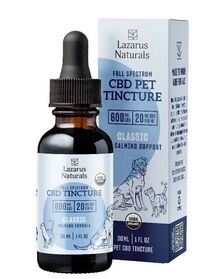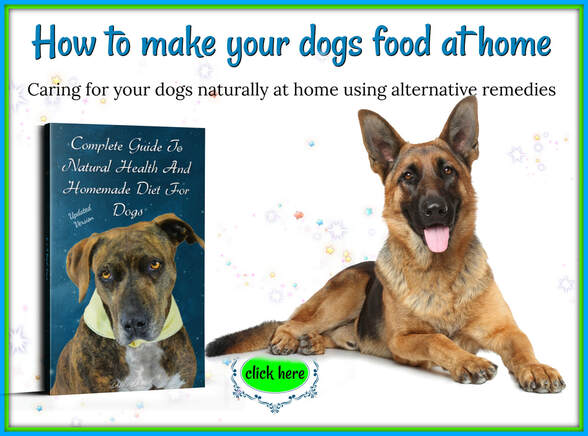
By Ottawa Valley Dog Whisperer
1.0 What is Acid Reflux - GERD
Acid Reflux in dogs is called Gastroesophageal reflux – GERD for short. GERD occurs when the sphincter muscle of the lower esophagus is damaged or weakened. The malfunctioning valve of the esophagus allows an uncontrollable reverse flow of gastric or intestinal fluids - bile salts, stomach acid and other GI juices to pass into the muscular tube that connects and passes food from the throat (pharynx) to the stomach. The lining of the esophagus is not designed to tolerate the strong stomach acids. As a result the lining of the esophagus can become irritated and further damaged.
GERD can result in a mild or more severe condition:
Mild esophagitis is a mild inflammation of the esophageal lining;
Severe esophagitis causes damage to the deeper layers of the esophagus.
1.0 What is Acid Reflux - GERD
Acid Reflux in dogs is called Gastroesophageal reflux – GERD for short. GERD occurs when the sphincter muscle of the lower esophagus is damaged or weakened. The malfunctioning valve of the esophagus allows an uncontrollable reverse flow of gastric or intestinal fluids - bile salts, stomach acid and other GI juices to pass into the muscular tube that connects and passes food from the throat (pharynx) to the stomach. The lining of the esophagus is not designed to tolerate the strong stomach acids. As a result the lining of the esophagus can become irritated and further damaged.
GERD can result in a mild or more severe condition:
Mild esophagitis is a mild inflammation of the esophageal lining;
Severe esophagitis causes damage to the deeper layers of the esophagus.
2.0 Who is at Risk of Acquiring GERD
Dogs and cats of all ages;
Dogs and cats with a genetic predisposition to acquiring GERDS – this includes Brachycephalic breeds (short nose, flat face breeds) that are most susceptible to GERD;
For example:
Bully breeds such as the –
Other dog breeds such as -
Feline breeds such as –
Dogs and cats that may be subject to any of the conditions listed under ‘Causes’ of Acid Reflux - GERD’ as provided just below…
Dogs and cats of all ages;
Dogs and cats with a genetic predisposition to acquiring GERDS – this includes Brachycephalic breeds (short nose, flat face breeds) that are most susceptible to GERD;
For example:
Bully breeds such as the –
- American Bulldog;
- American Pit Bull and Staffordshire Terrier;
- Boston Terrier;
- Boxer;
- Cane Corso;
- Presa Canario;
- Pug; etc.
Other dog breeds such as -
- American Cocker Spaniel,
- Lhasa Apso
- Shih Tzu
Feline breeds such as –
- Himalayan Cats;
- Persian Cats; etc.
Dogs and cats that may be subject to any of the conditions listed under ‘Causes’ of Acid Reflux - GERD’ as provided just below…
3.0 Causes of Acid Reflux - GERD
Consumption of a meal (or a daily diet) that is very high in fat;
Consumption of too much food when the stomach is already full;
Foreign matter in the esophagus;
Genetic predisposition – brachycephalic breeds as noted in section 2.0 above;
Hiatal hernia in the upper portion of the stomach – dogs with genetic pre-disposition for condition;
Megaesphagus – a condition caused by improper functioning of esophagus muscles;
Result of surgery:
Side effect or adverse reaction to a veterinarian prescribed antibiotic or other drug;
From improper fasting prior to surgery and/or;
Improper positioning of the dog or cat during surgery;
Placement of the breathing tube (used to provide anesthesia) and oxygen during surgery.
Consumption of a meal (or a daily diet) that is very high in fat;
Consumption of too much food when the stomach is already full;
Foreign matter in the esophagus;
Genetic predisposition – brachycephalic breeds as noted in section 2.0 above;
Hiatal hernia in the upper portion of the stomach – dogs with genetic pre-disposition for condition;
Megaesphagus – a condition caused by improper functioning of esophagus muscles;
Result of surgery:
Side effect or adverse reaction to a veterinarian prescribed antibiotic or other drug;
From improper fasting prior to surgery and/or;
Improper positioning of the dog or cat during surgery;
Placement of the breathing tube (used to provide anesthesia) and oxygen during surgery.
4.0 Other Conditions That May Mimic the Symptoms of GERD
Abscess;
Cancer of the throat or mouth;
Hiatal hernia;
Ingestion of toxins;
Tumor in the esophagus.
Megaesophagus – a condition where the muscles of the esophagus fail to push the food into the stomach.
Bailey Chairs
5.0 Symptoms of GERD
Appetite loss;
Burping;
Chronic vomiting;
Excessive salivation or drooling (in the case of severe esopagitis);
Gagging after eating;
Inactive after eating;
Inflammation of the espophagus;
Fever (in the case of severe esophagitis);
Regurgitation of food;
Pacing;
Pain while swallowing – dog or cat may whine, cry, howl, etc.;
Weight loss.
6.0 Strategy for Natural Treatment and Remedy
Reduce factors that promote bacterial overgrowth and low stomach acid;
Replace enzymes, nutrients and stomach acid that are essential for digestion and enable health;
Restore beneficial bacteria and healthy mucosal lining in the gut.
Step One
With hold (fast) the dog for a day or two – this provides the esophagus with a chance to relax and heal a little;
After fasting change the feeding schedule...
Step Two
No more large meals, (i.e. 1 or 2 meals per day) instead do;
Frequent small meals throughout the day – i.e. 4 to 6 small meals/day, and;
Don’t add water to the food in the bowl as this can make acid reflux worse.
Reduce factors that promote bacterial overgrowth and low stomach acid;
Replace enzymes, nutrients and stomach acid that are essential for digestion and enable health;
Restore beneficial bacteria and healthy mucosal lining in the gut.
Step One
With hold (fast) the dog for a day or two – this provides the esophagus with a chance to relax and heal a little;
After fasting change the feeding schedule...
Step Two
No more large meals, (i.e. 1 or 2 meals per day) instead do;
Frequent small meals throughout the day – i.e. 4 to 6 small meals/day, and;
Don’t add water to the food in the bowl as this can make acid reflux worse.
Step Three
Avoid Exacerbating GERD with the Wrong Dietary Choices...
While treating GERD eliminate all of the following from food and treats -
All grains – refined cereal grain, whole grains and grain by-products;
Legumes;
Refined sugars;
Starchy vegetables;
High fat poor source meat and fats;
Commercial off the shelf and veterinarian prescribed and dry dog and cat food and treats contain many ingredients (and hidden ingredients) that can exacerbate GERDS.
Consider Changing to a Diet with Ingredients You Control...
You can use this homemade grain-free recipe;
Include the following -
Lean ground meat from organic pasture fed animals;
Squash, pumpkin, turnip or rutabaga instead of sweet potatoes or legumes;
Low fat cottage cheese and low fat kefir from organic pasture fed animals;
Step Four
Add some nutraceuticals and herbs that help stop GERD by supporting good digestive health –
Probiotics to support health of the gastrointestinal (GI) tract
Add kefir to the daily diet this article explains how to choose a good quality kefir product for your dog or cat;
If you don't want to use kefir you can use fresh sauerkraut (fresh sauerkraut can be found in the refrigerated section of a grocery store or specialty food store or you can make it yourself – don’t use wine sauerkraut or the unrefrigerated type of sauerkraut);
If you want to make your own sauerkraut you can use this recipe;
If you don't want to use a probiotic food then purchase a good probiotic supplement;
Most probiotic supplements are not worth buying - make sure you really know how to select a good product.
Avoid Exacerbating GERD with the Wrong Dietary Choices...
While treating GERD eliminate all of the following from food and treats -
All grains – refined cereal grain, whole grains and grain by-products;
Legumes;
Refined sugars;
Starchy vegetables;
High fat poor source meat and fats;
Commercial off the shelf and veterinarian prescribed and dry dog and cat food and treats contain many ingredients (and hidden ingredients) that can exacerbate GERDS.
Consider Changing to a Diet with Ingredients You Control...
You can use this homemade grain-free recipe;
Include the following -
Lean ground meat from organic pasture fed animals;
Squash, pumpkin, turnip or rutabaga instead of sweet potatoes or legumes;
Low fat cottage cheese and low fat kefir from organic pasture fed animals;
Step Four
Add some nutraceuticals and herbs that help stop GERD by supporting good digestive health –
Probiotics to support health of the gastrointestinal (GI) tract
Add kefir to the daily diet this article explains how to choose a good quality kefir product for your dog or cat;
If you don't want to use kefir you can use fresh sauerkraut (fresh sauerkraut can be found in the refrigerated section of a grocery store or specialty food store or you can make it yourself – don’t use wine sauerkraut or the unrefrigerated type of sauerkraut);
If you want to make your own sauerkraut you can use this recipe;
If you don't want to use a probiotic food then purchase a good probiotic supplement;
Most probiotic supplements are not worth buying - make sure you really know how to select a good product.
I disagree with this last statement. Probiotics and digestive enzymes are VERY beneficial when a dog is having issues. ~ H.O.P.S.
Bone Broth for protection and healing of the GI tract
Make a bone broth soup;
Bone broth contains glutamine – a metabolic fuel used by intestinal cells which helps the lining of the gut;
You can offer the bone broth as a mini-meal once a day;
Natural Honey for protection and healing of the GI tract
Natural honey (raw, unpasteurized) is called the world's perfect food - for very good reason...
Honey is a very healing food. Adding natural honey to your dog's and cat's daily diet can help in the reduction of the symptoms of GERD and the elimination of the condition.
Honey also contributes to overall health in multiple ways including supporting the immune system, provides antioxidants is a prebiotic, a probiotic and an anti-carcinogen.
Make a bone broth soup;
Bone broth contains glutamine – a metabolic fuel used by intestinal cells which helps the lining of the gut;
You can offer the bone broth as a mini-meal once a day;
Natural Honey for protection and healing of the GI tract
Natural honey (raw, unpasteurized) is called the world's perfect food - for very good reason...
Honey is a very healing food. Adding natural honey to your dog's and cat's daily diet can help in the reduction of the symptoms of GERD and the elimination of the condition.
Honey also contributes to overall health in multiple ways including supporting the immune system, provides antioxidants is a prebiotic, a probiotic and an anti-carcinogen.
While unfiltered honey may be helpful, remember it is also a sugar and can cause weight gain as well as high blood sugar. Great for occasional use. ~ H.O.P.S.
Aid Digestion with Herbs
Prior to using any herbs make sure that you check each herb’s drug interactions if your dog is on any conventional medicines, and cautions if your dog has any additional medical conditions.
One
Add two to three of the following bitter herbs (use either dry herb or tincture form with no alcohol) to each meal;
Bitter herbs stimulate stomach acid production which helps with the proper digestion of food;
Add two to three of the following bitter herbs (use either dry herb or tincture form with no alcohol) to each meal;
Use 1/8 to 1/4 tsp of each herb if using dry herb or powder
(of the two or three herbs that you select from the list below);
Add 1 to 2 drops of each herbal tincture (of the two or three herbs that you select from the list below);
Prior to using any herbs make sure that you check each herb’s drug interactions if your dog is on any conventional medicines, and cautions if your dog has any additional medical conditions.
One
Add two to three of the following bitter herbs (use either dry herb or tincture form with no alcohol) to each meal;
Bitter herbs stimulate stomach acid production which helps with the proper digestion of food;
Add two to three of the following bitter herbs (use either dry herb or tincture form with no alcohol) to each meal;
Use 1/8 to 1/4 tsp of each herb if using dry herb or powder
(of the two or three herbs that you select from the list below);
Add 1 to 2 drops of each herbal tincture (of the two or three herbs that you select from the list below);
- Angelica
- Caraway
- Celandine
- Dandelion
- Fennel
- Gentian root
- Goldenseal root
- Lemon Balm
- Licorice root
- Milk thistle
- Oregon Grape (Barberry Bark)
- Peppermint
- Wormwood
- Yellow dock
You can also add a papain or bromelain based digestive supplement to your dog or cat’s food or use fresh minced Papaya.
Two
Add fresh garlic to food once a day – make sure you read this article on garlic to understand best preparation methods, daily dosage, cautions, drug interactions.
Three
Mix the following together and add to each meal…
Two
Add fresh garlic to food once a day – make sure you read this article on garlic to understand best preparation methods, daily dosage, cautions, drug interactions.
Three
Mix the following together and add to each meal…
- 1/2 tsp of organic unpasteurized apple cider vinegar;
- 1/8 tsp of turmeric;
- 1/8 tsp of fresh minced ginger or ginger powder;
- ¼ tsp of marshmallow root powder or slippery elm bark powder (both herbs contain mucilage which helps to coat the esophagus and stomach lining creating a protective barrier against inflammation due to stomach acid.
READ "LEAKY GUT PROTOCOL" FOR SIMILAR SYMPTOMS AND TREATMENT OPTIONS ALONG WITH DIET
This works great for Acid Reflux
| sodium_chlorite_protocols_for_cats_and_dogs_jc_rev_3_final_17may23.pdf | |
| File Size: | 606 kb |
| File Type: | |

















